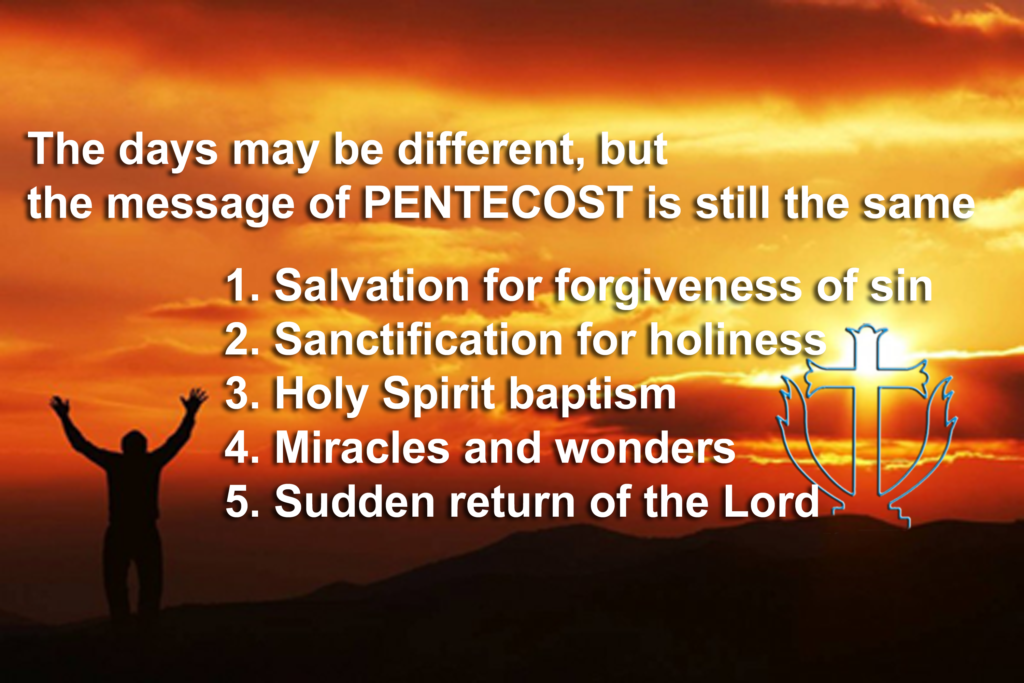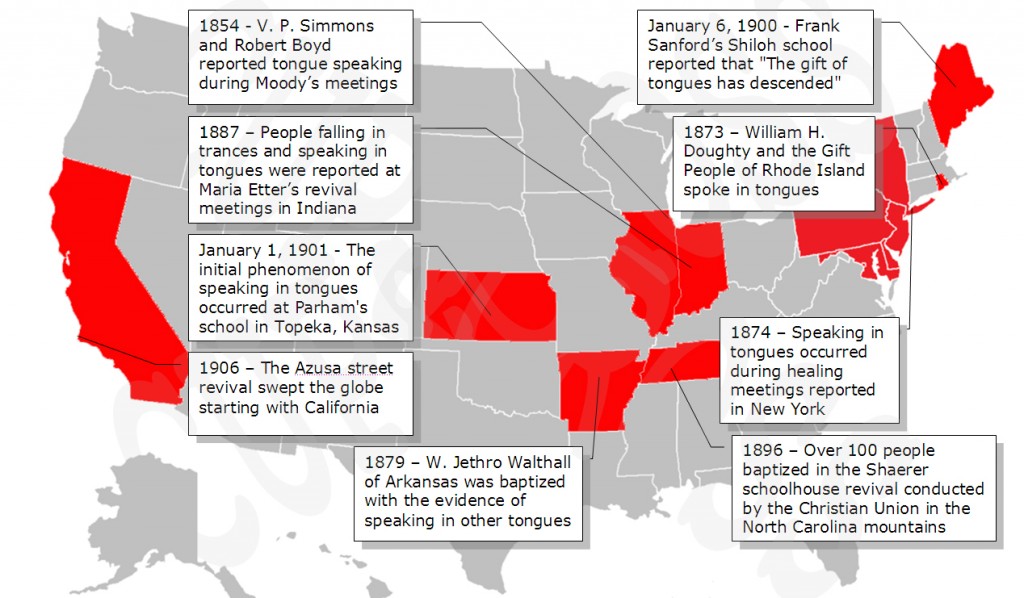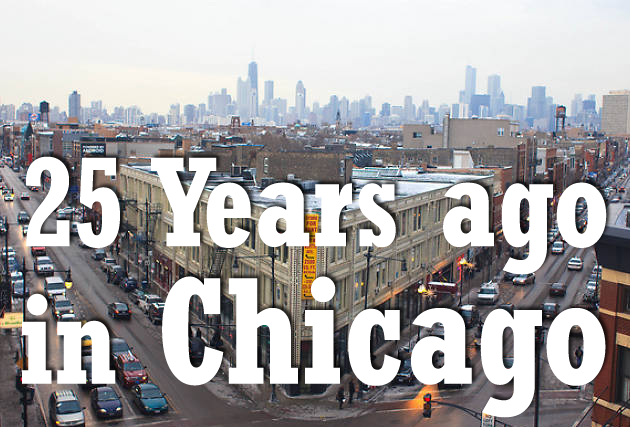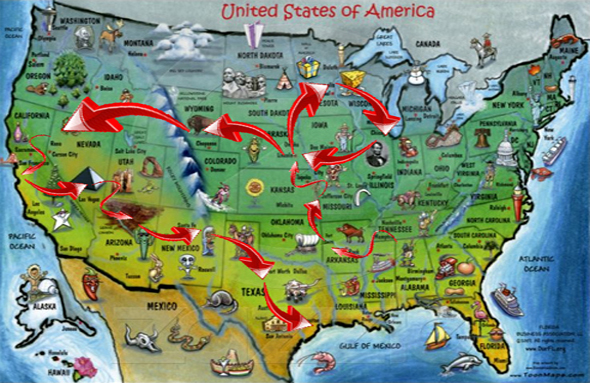The message of PENTECOST is still the same…
June 1, 2020 by Cup&Cross
Filed under Featured, News, Publication
Since the beginning of the 21st century, only 6-10% of new born believers in America receive the Baptism with the Holy Spirit, which by 2018 has resulted in:
- Over 60% within Global Pentecostalism do not speak in tongues
- A major doctrinal shift within Pentecostal Theology today claims speaking in tongues is not the only evidence of Holy Spirit Baptism
- Some theologians even claim there is no initial evidence in the Bible
- Others today go further to believe that no outward sign of the Holy Spirit baptism is necessary.
For this reason, WE are re-committing ourselves and ministry to revival and restoration of the Pentecostal Message through praying, fasting and preaching:
- Salvation of the sinner’s soul and entire sanctification through the Blood of Jesus
- Baptism with the Holy Spirit and fire with initial evidence of speaking in tongues
- Supernatural gifts and ministries of the Holy Spirit
- Healing, deliverance and signs following
- Pre-Millennial return of Christ and pre-Tribulation Rapture of His Church to glory
Please consider the URGENCY of this generation!
Let us reason together what can we do to prevent this rapid decline in Biblical spirituality.
Revival will not come without preaching!
Revival of Pentecost will not come without preaching the Message of Pentecost.
Speaking in Tongues in America Prior to the Azusa Street Revival of 1906
April, 1906 – The Azusa street revival swept the globe starting with California
January 1, 1901– The initial phenomenon of speaking in tongues occurred at Parham’s school in Topeka, Kansas
January 6, 1900 – Frank Sanford’s Shiloh school reported that “The gift of tongues has descended”
1896 – Over 100 people baptized in the Shaerer schoolhouse revival conducted by the Christian Union in the North Carolina mountains
1887 – People falling in trances and speaking in tongues were reported at Maria Etter’s revival meetings in Indiana
1874 – Speaking in tongues occurred during healing meetings reported in New York
1873 – William H. Doughty and the Gift People of Rhode Island spoke in tongues
1854 – V. P. Simmons and Robert Boyd reported tongue speaking during Moody’s meetings
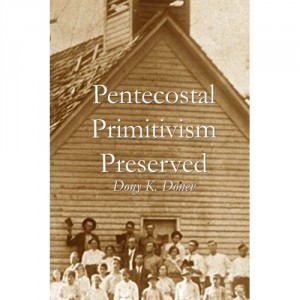
FURTHER READING:
Church of God (Cleveland, TN)
- Alive, alive! (A personal testimony)
- Church of God Primitivism
- Bulgarian Church of God
- J.W. Buckalew
- Why revival came? by Dr. Charles Conn
Azusa Street Revival of 1906
- Lucy F. Farrow: The Forgotten Apostle of Azusa
- The FORGOTTEN ROOTS OF THE AZUSA STREET REVIVAL
- Azusa Street’s Apostolic Faith Renewed
- Azusa Street Sermons
- Pentecostal Primitivism Preserved
Prior to Azusa Street Revival of 1906
- First person to speak in tongues in the Assemblies of God was William Jethro Walthall of the Holiness Baptist Churches of Southwestern Arkansas
- The Work of the Spirit in Rhode Island (1874-75)
- Speaking in Tongues in America Prior to the Azusa Street Revival
- WAR ON THE SAINTS: Revival Dawn and the Baptism of the Spirit
- How Jezebel Killed One of the Greatest Revivals Ever
Back to the Basics of Pentecost: Diamonds in the Rough-N-Ready (2020)
 Since the beginning of the 21st century, only 6-10% of new born believers in America receive the Baptism with the Holy Spirit, which by 2018 has resulted in:
Since the beginning of the 21st century, only 6-10% of new born believers in America receive the Baptism with the Holy Spirit, which by 2018 has resulted in:
- Over 60% within Global Pentecostalism do not speak in tongues
- A major doctrinal shift within Pentecostal Theology today claims speaking in tongues is not the only evidence of Holy Spirit Baptism
- Some theologians even claim there is no initial evidence in the Bible
- Others today go further to believe that no outward sign of the Holy Spirit baptism is necessary.
For this reason, WE are re-committing ourselves and ministry to revival and restoration of the Pentecostal Message through praying, fasting and preaching:
- Salvation of the sinner’s soul and entire sanctification through the Blood of Jesus
- Baptism with the Holy Spirit and fire with initial evidence of speaking in tongues
- Supernatural gifts and ministries of the Holy Spirit
- Healing, deliverance and signs following
- Pre-Millennial return of Christ and pre-Tribulation Rapture of His Church to glory
Please consider the URGENCY of this generation!
Let us reason together what can we do to prevent this rapid decline in Biblical spirituality.
Revival will not come without preaching!
Revival of Pentecost will not come without preaching the Message of Pentecost.
Speaking in Tongues in America Prior to the Azusa Street Revival of 1906
April, 1906 – The Azusa street revival swept the globe starting with California
January 1, 1901– The initial phenomenon of speaking in tongues occurred at Parham’s school in Topeka, Kansas
January 6, 1900 – Frank Sanford’s Shiloh school reported that “The gift of tongues has descended”
1896 – Over 100 people baptized in the Shaerer schoolhouse revival conducted by the Christian Union in the North Carolina mountains
1887 – People falling in trances and speaking in tongues were reported at Maria Etter’s revival meetings in Indiana
1874 – Speaking in tongues occurred during healing meetings reported in New York
1873 – William H. Doughty and the Gift People of Rhode Island spoke in tongues
1854 – V. P. Simmons and Robert Boyd reported tongue speaking during Moody’s meetings

FURTHER READING:
Church of God (Cleveland, TN)
- Alive, alive! (A personal testimony)
- Church of God Primitivism
- Bulgarian Church of God
- J.W. Buckalew
- Why revival came? by Dr. Charles Conn
Azusa Street Revival of 1906
- Lucy F. Farrow: The Forgotten Apostle of Azusa
- The FORGOTTEN ROOTS OF THE AZUSA STREET REVIVAL
- Azusa Street’s Apostolic Faith Renewed
- Azusa Street Sermons
- Pentecostal Primitivism Preserved
Prior to Azusa Street Revival of 1906
- First person to speak in tongues in the Assemblies of God was William Jethro Walthall of the Holiness Baptist Churches of Southwestern Arkansas
- The Work of the Spirit in Rhode Island (1874-75)
- Speaking in Tongues in America Prior to the Azusa Street Revival
- WAR ON THE SAINTS: Revival Dawn and the Baptism of the Spirit
- How Jezebel Killed One of the Greatest Revivals Ever
25 Years Ago in Chicago…
Exactly a quarter of a century ago today, I arrived in Chicago with a plan to start a Bulgarian church. That was my second trip to the Windy City after a mission’s trip with a few college friends in Christmas of 1994. The Narraganset Church of God in Chicago hosted us with great success and it was there I met several Bulgarians who desired to start a church. A key moment still remembered from 1994 was the “boot sermon.”
On Memorial Day weekend of 1995, I drove my Carolina baby blue Buick Grand National exactly 777 miles north to Chicago. It was still the time of no GPS or phone navigation so the only thing I had to go buy was an old atlas. Not knowing a better way just yet, I didn’t take the North-West Suburbs but exited on North Avenue and ended up driving its whole length through the city. On a warm Sunday the entire population of Wicker Park was in the streets. It was like in the movies. So was the rest of the Summer of 1995.
I had made little arrangements for my stay and ended up with a Bulgarian family living on Jackson Blvd. For the lack of space, I slept on an old couch on their balcony. Yes, during the Chicago heat wave of 1995.
I stayed with the pastor’s family a lot, especially when we started our 5 a.m. prayers in the church for members who would stop by to be prayed for before going to work. Some of those nights I just stayed at the church and slept on the first pew before the altar. It was there one early morning God woke me with the whole Gospel of John open before me, which later became the plan for my Bible translation.
As to the start of the Bulgarian church in Chicago, it came naturally as part of the ministry. The small band of Bulgarian believers would come for the English-speaking morning worship and then stay for a Bulgarian service in the early afternoon. A Spanish-speaking service followed at 4 P.M. as well. Several key events through the summer like the now-traditional Bulgarian 4th of July picnic in Chicago and a block party organized by the Narraganset Church of God helped spread the word of our Bulgarian ministry. Soon migrants of all ages began attending the afternoon services.
The most I remember from those services was prayer. Yes, I preached and there were guest speakers as well, but we mostly prayed. Bulgarians of all ages would come to the alter with their life pain and needs. Deep hurt within immigrant hearts, missing family members left behind in the old country, new struggles with work and existence in their new migrant reality and so on – all became a part of the new life of the Bulgarian church in Chicago. And those prayers were answered one by one. People did not come to attend or become members of a church plant project. They came and found answer to their prayers, direction in their lives and healing for their deep pain. Hidden from everyone else in Chicago, a river of pain flowed at those old church alters and a rain of healing, hope and peace filled the emptiness in those emigrant souls. That much I do still remember.
Through the whole summer as the Bulgarian church in Chicago began, I wrote my parents every Friday. Two regular stamps were what it took for a letter to get to Bulgaria back then. I would walk from the church on Narraganset across the street to Grand and drop the letter in a blue street U.S. mailbox. They all got to their destination. My dad had stored them all in an old shoe box after reading them, and I was able to find them all recently. They ain’t no diary, but still tell the story with details of each week of those humble beginnings. Along with the letters, there were a lot of pictures I had taken with my small 35mm. camera that looked more like a taser. The Metro, Sear’s Tower and under it where we ministered to the homeless, South Side and Cabrini Green, Rigley Field and Comiskey Park, McCormick and LSD. I only wish I had taken better notes now that I am writing this book. Times, places and faces are often mixed and sometimes lost in the timeline, but the story is far from forgotten. Now, a quarter of a century later, it is time to tell this story and tell it right… for the generations.
Regular Attendance Has Dropped in 2020
Attendance is one of the most sought after church statistics. Sadly, it’s also a number that’s dropped. Gallup’s most recent yearly summary is from 2017, but it shows a drop from 42% in 2008 to 37% in 2017 for regular attendees. You shouldn’t panic too much as this number hasn’t dropped drastically at all. In fact, in the 1950s, the number was only around 50%. Pro Church Tools also uncovered a sobering statistic – attendance in 2050 could be as much as half of what it was in 1990. That sounds horrible, but consider the move towards digital. You could easily see a rise in online attendance.
Millennials Have No Affiliation in 2020
When it comes to faith, millennials are choosing not to label themselves as one type of faith over another. Nearly 40% of Americans between 18-29 have no particular religious affiliation. That doesn’t mean they don’t believe in God, but they don’t follow a set denomination.
2020 Drive Thru Alternative COVID Friendly VBS Ideas
This year churches are having to resort to unique ways of ministry. We are doing a great job reaching our adults and being creative with virtual, online experiences for the kiddos to stay connected, but kids need routine and consistency of years pasts. Our kids will be looking forward to their annual VBS in-person experience. So let’s not let them down. Let’s put our heads together to give them the best VBS they will remember for years to come beyond cyberspace.
Here are some ideas:
- Have a one night drive thru experience where volunteers dress up as biblical characters to share the Roman’s Road to Salvation at difference stations throughout parking lot
- Have church members act out skits each night of the week and families can watch from car
- Do a drive thru at church where each night families can come and pick up VBS packets to take home and accomplish next day together
- Do a Trunk or Treat type VBS
- Perhaps do a scavenger hunt where you hide large cutouts around property that go along with a bible story
- Partner with a radio station in which families can tune and hear word and song from car
- Do a VBS in the style of a single scene live nativity
- Watch a Christian movie together at a local drive-in theater or a theater you create
- Could do some type of outdoor social distancing praise time and story or testimony
What are some ideas you have for your church? Please share so we can reach our kids with the greatest story in the world. Don’t cancel VBS this year because we are too emotionally overwhelmed or too busy. Let’s be the rock they need in this time of uncertainty. We were made for such a time as this.
Arizona State Quarter: A Decade Later
 We used the time in the San Francisco Bay Area to meet up with old friends from our youth group in Bulgaria. While having coffee at the El Cerrito Starbuck’s early Sunday morning, we reminisced about friends and stories from the past. Leaving the coffee shop, we came across an Arizona state quarter lying on the pavement. After picking it up, my friend shared how his brother just recently moved to Phoenix with his family.
We used the time in the San Francisco Bay Area to meet up with old friends from our youth group in Bulgaria. While having coffee at the El Cerrito Starbuck’s early Sunday morning, we reminisced about friends and stories from the past. Leaving the coffee shop, we came across an Arizona state quarter lying on the pavement. After picking it up, my friend shared how his brother just recently moved to Phoenix with his family.
At this time we had no intentions of going to the southern part of Arizona, as we had planned to travel straight across through New Mexico to reach Houston for our Easter service there. Yet, the Lord had other plans and we ended up having a last minute cancellation in our schedule which allowed for us to travel to Phoenix and spend time with our friends there.
This occasion was one of the most blessed of times of fellowship on our trip. We were able to establish divine connections as we prayed for a new Bulgarian Church in the Phoenix area. We were also able to work out the details of being able to broadcast live feed from Bulgarian churches in the US and abroad – a vision which we have held closely to our hearts for the past decade while being involved with the Bulgarian Christian Television and ministry on the internet. Together, we called this broadcast Divine Connections. As a result, Cup & Cross Ministries has been able to broadcast LIVE services from all around Bulgaria in the past month and our team is planning to broadcast live the 2009 annual conference of Bulgarian Evangelical Churches in North America, which will be held May 22-25 in Los Angelis, California.
2020 UPDATE:
- We’ve hosted over one million LIVE broadcast on Bibliata.TV since 2009
- The Bulgarian church in Phoenix has been operational for several years now
- We will be broadcasting the 2020 Bulgarian church conference LIVE via Zoom from Las Vegas, Nevada
2020 Vision for Bulgarian Evangelical Churches Abroad Completed
 Over a decade ago, after publishing Bulgarian Churches in North America: Analytical Overview and Church Planting Proposal for Bulgarian American Congregations Considering Cultural, Economical and Leadership Dimensions, we purposed to explore the possibility of implementing the church planning program among Bulgarian Diasporas in various destination countries of migration.
Over a decade ago, after publishing Bulgarian Churches in North America: Analytical Overview and Church Planting Proposal for Bulgarian American Congregations Considering Cultural, Economical and Leadership Dimensions, we purposed to explore the possibility of implementing the church planning program among Bulgarian Diasporas in various destination countries of migration.
With this in mind, we carried the vision for establishing 20 Bulgarian churches outside of Bulgaria by the year 2020. Cyprus, the United Kingdom and Canada were among the first to successfully implement our program. Bulgarian migrant communities in France, Italy and especially Spain and Germany followed with great enthusiasm – there are 7 Bulgarian evangelical churches active in Span today, and 18 in Germany.
Of course, not all parts of the program proved to be efficient. The program’s modules and training that was implemented, however, have produced 47 strong church plants thus far and the number is growing every month. The program proposed has been confirmed by the leadership we have received from the Holy Spirit. Our commitment to seize the opportunity and work toward adding more Bulgarian churches by the year 2020 has by far surpassed all expectations.
Bulgarian Evangelical Churches in the European Union (2020 Report)
- Bulgarian Evangelical Churches in Germany
- Bulgarian Evangelical Churches in Spain
- Bulgarian Evangelical Churches in England
- Bulgarian Evangelical Churches in France
- Bulgarian Evangelical Churches in Belgium
- Bulgarian Evangelical Churches in Italy
- Bulgarian Evangelical Churches in Cyprus
- Bulgarian Evangelical Churches in Crete
Bulgarian Evangelical Churches in America (2020 Report)
- Bulgarian Evangelical Churches in Chicago (2020 Report)
- Bulgarian Evangelical Churches in Texas (2020 Report)
- Bulgarian Evangelical Churches – West Coast (2020 Report)
- Atlanta (active since 1996)
- Los Angeles (occasional/outreach of the Foursquare Church – Mission Hills, CA)
- Las Vegas (outreach of the Foursquare Church – http://lasvegaschurch.tv)
- San Francisco (occasional/inactive since 2012, Berkeley University/Concord, CA)
Bulgarian Evangelical Churches in Canada (2020 Report)
- Toronto (inactive since 2007)
- Toronto/Slavic (active since 2009)
- Montreal (occasional/inactive since 2012)
CURRENTLY INACTIVE CHURCHES/CONGREGATIONS:
- New York, NY (currently inactive)
- Buffalo, NY (occasional/inactive)
- Jacksonville, FL (occasional/inactive since 2014)
- Ft. Lauderdale / Miami (currently inactive)
- Washington State, Seattle area (currently inactive)
- Minneapolis, MN (occasional/inactive since 2015)
READ MORE:
- First Bulgarian Church in Chicago Opened in 1907
- Gateway Cities for Bulgarian Evangelical Churches
- How to Start a Bulgarian Church in America from A-to-Z
- Unrealized Spiritual Harvest as a Paradigm for Cross-Cultural Ministries among Migrant and Disfranchised Ethnic Groups in America Today
Divine Connections TV: A Decade of Destiny Later
Almost exactly a decade ago, the year 2009 was monumental for this Decade of Destiny.
Upon the invitation of Logos Bible Software, we traveled to their annual BibleTech Conference in San Jose, California to present the more clear approach to Bible translation and its implementation in our new Bulgarian Bible Interlinear.
Our first stop to the conference was a very fruitful meeting with Dr. Albert Wardin at the Billy Graham Archives. This meeting became the reason to further direct our research on Ivan Voronaev and the roots of Bulgarian Pentecostalism to a new archive location in route to Berkeley University.
The trip was strategically planned to visit Bulgarian congregations on the way in
- Nashville,
- Chicago,
- Minneapolis/St. Paul,
- Tahoe,
- Seattle,
- San Francisco,
- Los Angeles,
- Las Vegas,
- Phoenix,
- Houston,
- Dallas,
- Florida
- and Atlanta.
These short but blessed visits consecutively materialized into the 2020 Vision for Bulgarian Churches in North America. Most memorable among all was our meeting in El Cerrito, which happened to be just a few miles from our research location in Berkeley and not far from the ministry center for the Bulgarian Slavic diaspora in Concord. It was at this meeting that our missional strategy for San Francisco and Phoenix was born and later finalized in ministry with the Bulgarian church in Las Vegas.
Perhaps more needs to be said later about the Berkeley connection and the vision of the Arizona quarters in detail. Especially in part of the divine connection broadcasts that became an essential part of our own Bibliata.TV. But most importantly, now the 2020 Vision is almost completed as a Decade of Destiny, what follows is a strongly proven paradigm for church growth and revitalization. And as such, it has effectively spread to so many Bulgarian churches abroad – from a simple vision for 20 churches into 20 different countries.
10 Reasons to Be Thankful in the Midst of COVID-19 Pandemic
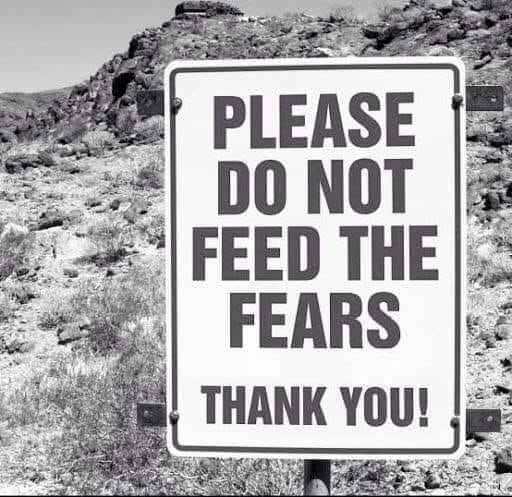 Families spend more time together at home and in nature
Families spend more time together at home and in nature- Gas prices have decreased
- Eating around dinner table has replaced going out to restaurants
- Prayer and return to the Faith has increased
- Homeschooling has become popular
- Open-air church meetings are coming back
- Communities are rallying together to help one another with less individualism
- Politicians are working more cohesively
- We are resourceful and not wasteful appreciating small things and basic necessities
- We are going back to the basics of a slower more grounded lifestyle


